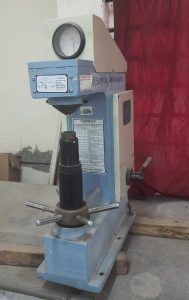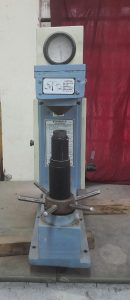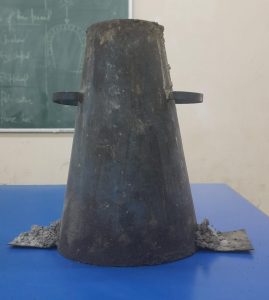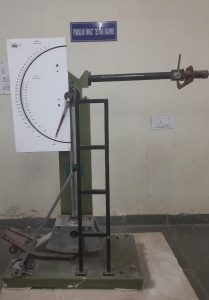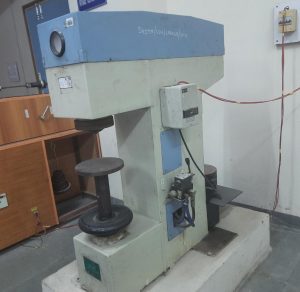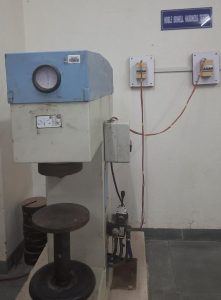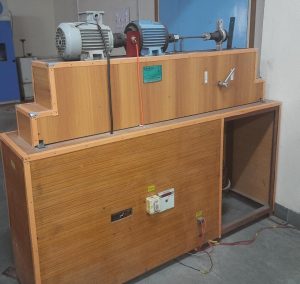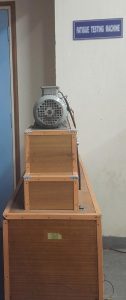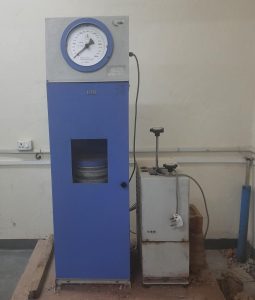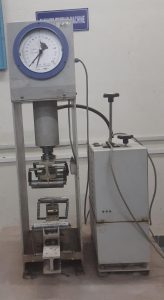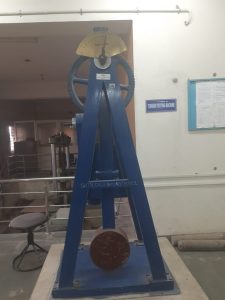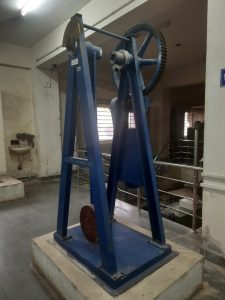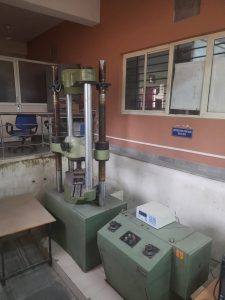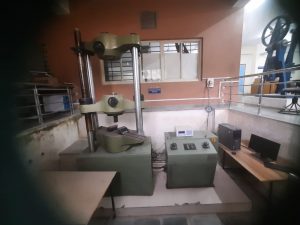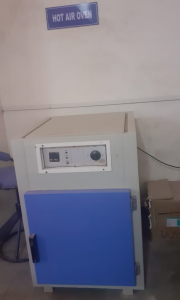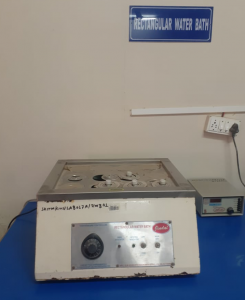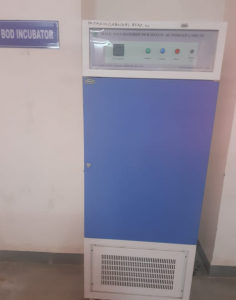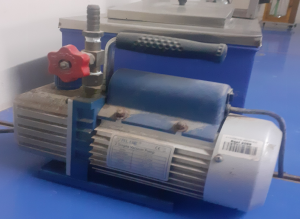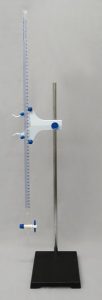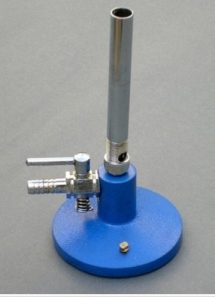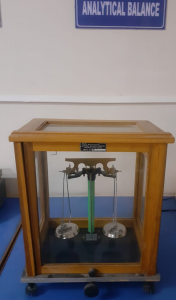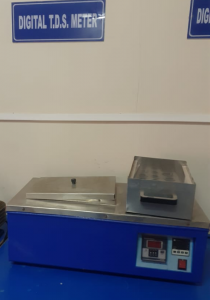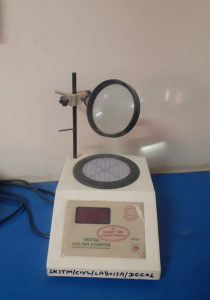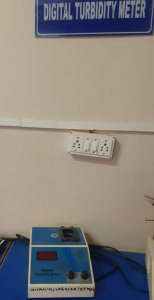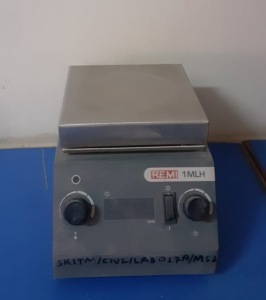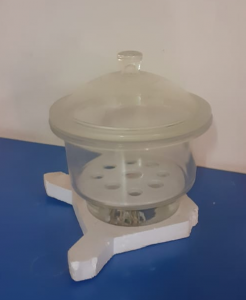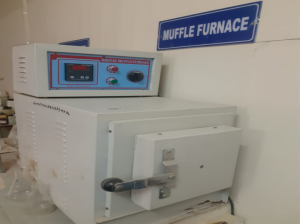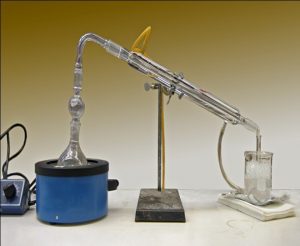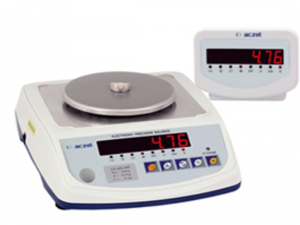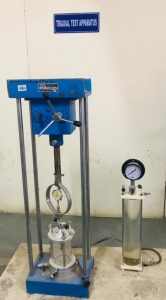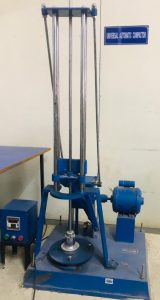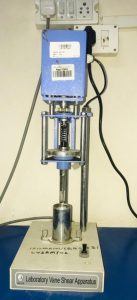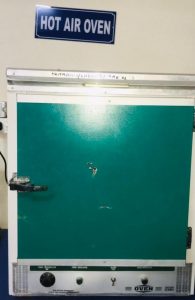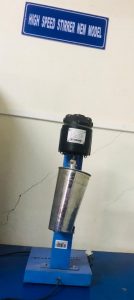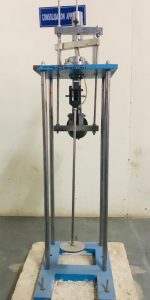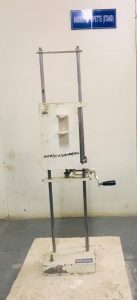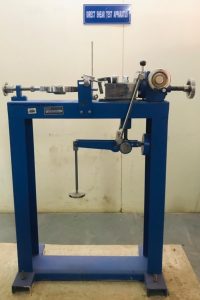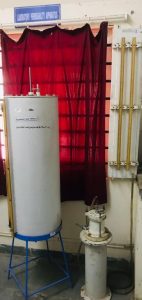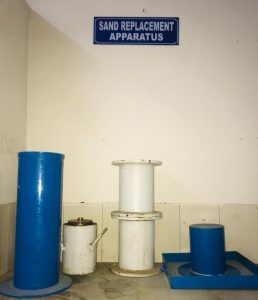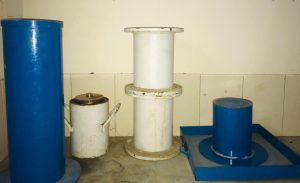Civil Engineering
The Department focuses on advanced research and education in the broad areas of Geotechnical, Structural, Transportation, and Water Resources & Environmental Engineering.
Intake, Affiliation and Duration
- Program: B.Tech. (Civil Engineering)
- Intake: 90
- Duration: 04 Years
- Approved By: AICTE
- Affiliation: Rajiv Gandhi Proudyogiki Vishwavidyalaya, Bhopal
Vision
To be a centre of excellence by producing civil engineers who can face dynamic challenges confronting society.
Mission
- To produce technically competent and globally employable civil engineers by providing excellent education and field exposure.
- To develop industry-academia relationships by providing consultancy services.
- To meet the challenges confronting society by undertaking research and continuing education programmes for the academic and field community.
- To organise co-curricular and extracurricular activities for overall personality development of civil engineering graduates.
| SR.NO | NAME OF FACULTY STAFF | DESIGNATION | QUALIFICATION | EMAIL ADRESS |
| 1 | MR.GIRISH PATIDAR | ASSOCIATE PROF. & HEAD | M.TECH | [email protected] |
| 2 | MR.DINESH VISHVAKARMA | ASST.PROF. | M.TECH | [email protected] |
| 3 | MISS.DIVYA BARASKAR | ASST.PROF. | M.E. | [email protected] |
| 4 | MRS.NAMRATA SEN | ASST.PROF. | M.TECH | [email protected] |
| 5 | MRS.CHINMAYEE RAY | ASST.PROF. | M.TECH | [email protected] |
| 6 | MR.MOHD.ALTAF KHAN | LAB TECH. | ITI | [email protected] |
- Understanding of engineering fundamentals and their application to the solution of problems.
- Completion of a broad-based curriculum rich in liberal studies intended to raise awareness of cultural contexts and societal issues.
- Creation of sound designs subject to uncertainty and to multiple societal and engineering constraints.
- Experience with the process of research inquiry.
- Demonstrated skill at learning.
- Project management skills and an aptitude for management of multiple tasks.
- Creative, independent thinking and a tolerance for ambiguity.
- Communication skills, both written and oral.
- A capacity for leadership, inclusiveness, and teamwork.
- Professionalism, including ethics.
- A desire to provide service to society.
- To provide students with the fundamental technical knowledge and skills in mathematics, science and engineering to recognize and solve problems in the areas of structural design, geo-technical and geoenvironmental engineering.
- To provide students with the necessary skills and practical experience to fulfil their professional duties and responsibilities in teamwork, ethics, technical leadership, business acumen and lifelong learning.
- To make the students be in a position to practice professionally in various positions in industry or government and succeed in graduate or other professional schools.
- To mould the students to become future engineers, scientists, researchers, and innovators and make substantial contributions to the society of civil engineers.
- To prepare the students to be successful engineers or managers meeting the global industrial requirements.
- To make the students put constant efforts to improve the living quality of all walks of life by solving a wide range of problems.
- To produce young entrepreneurs who will partake in the development of Indian society in its vision to become a superpower.
Testing and Consultancy facilities
We at SKITM, Indore are providing technical services for testing of Materials like Soil, Coarse and Fine Aggregate, Crusher Products, Cement all types, Concrete Cubes / Blocks / Cement Concrete, Interlocking Blocks, Flooring Tiles, Bricks all types and consultancy facilities in the field of Environmental Engineering in Civil Engineering Laboratory of the Institute.
Tests for soil
- Laboratory C.B.R. test
- Liquid limit and plastic limit test
- Shrinkage limit test
- Permeability test (lab)
- Sieve analysis (Gradation of soil)
- Moisture content
- Proctor compaction test (OMC-MDD)
Tests for Bricks
- Compressive strength.
- Water absorption.
- Tests for aggregates
Impact Test
- Flakiness index
- Elongation index
- Specific gravity
- Sieve analysis (Gradation )
- Soundness test
- Tests for Concrete
- Compressive Strength
- Slump Test
Tests for Cement
- Fineness test
- Consistency test
- Initial and final setting time
- Compressive Strength
Tests for water / waste-water
- pH
- Acidity
- Alkalinity
- Chlorides
- Sulphate
- Dissolved Oxygen
- Biochemical Oxygen Demand
- Chemical Oxygen Demand
- Suspended solids
- Dissolved solids
- Total solids
- Total Hardness
- Calcium Hardness
- Mg Hardness
Additional training
Every year the interdepartmental competition is organized by the civil engineering department having various technical and non-technical activities with lots of cash and other prizes named Civil Mania / Thrill o Civil Bridge Model making and Crane making.
- 3 Days workshop on software SAP and STAADPro.
- How to prepare for Competitive Exams: (GATE, IES, PSCs)
- Courses on Construction Management by AMITY UNIVERSITY.
- Lectures on “Building Information Modeling” (BIM).
| S.NO. | NAME OF LABORATORY | LAB/ROOM NO. |
| 1 | Transportation Engineering Lab | 016A |
| 2 | Strength of Material & Material Testing lab | 016B |
| 3 | Environmental Engineering Lab | 017A |
| 4 | Surveying Lab | 017B |
| 5 | Theory Of Structures Lab | 018A |
| 6 | Geotechnical Engineering & Engineering Geology Lab | 018B |
[ps2id id=’som’ target=”/]
| Lab: Strength of Material (S.O.M.) [016 B] | ||
| S.
NO. |
NAME OF INSTRUMENT / EQUIPMENT | WORKING / USE |
| 1 | Rockwell Brinell Hardness Tester | standardized hardness test |
| 2 | Slump Cone | workability of a fresh concrete mix |
| 3 | Pendulum Impact Testing Machine | impact loading |
| 4 | Noble Brinell Hardness Tester | hardness testing of larger samples |
| 5 | Fatigue Testing Machine | static, dynamic, and fatigue tests |
| 6 | Compression Testing Machine | compressive pressure |
| 7 | Flexure Testing Machine | flexural strength |
| 8 | Torsion Testing Machine | Torsion Test |
| 9 | Computer Universal Testing Machine | tensile strength and compressive strength of materials |
1. ROCKWELL BRINELL HARDNESS TESTER
The Rockwell hardness test is used for macro hardness tests, which are generally defined as tests that use indentation loads below or equal to 1 kgf. Therefore, a ground surface is usually sufficient, and sometimes no preparation is required.
- SLUMP CONE
Concrete slump test or slump cone test is to determine the workability or consistency of concrete mix prepared at the laboratory or the construction site during the progress of the work. Concrete slump test is carried out from batch to batch to check the uniform quality of concrete during construction.
- PENDULUM IMPACT TESTING MACHINE
Pendulum Impact Testing is a high strain-rate test to determine the amount of energy absorbed by a material during fracture.The Impact tester involves a pendulum of known mass and length which is dropped from a known height to strike an Impact Specimen. Impact specimens are of standard or subsize dimensions that can be found in a variety of industry standards including ASTM E23, ASTM A370, EN 10045-1 and ISO 148. Various strikers and specimen vises are available to suit all requirements of Charpy or Izod Testing. Specimens are notched using a broaching machine to specific dimensions and geometries. The energy transferred to the material after impact can be inferred by comparing the change in height of the hammer before and after striking the specimen
- NOBLE BRINELL HARDNESS TESTER
The tester is used for determining the Brinell hardness of un-quenched steel, cast-iron,
nonferrous metals and soft bearing alloys. This tester can be used in metallurgical
plants, machine manufacturing plants, metal working plants , industrial laboratories,
and laboratory environments.
- FATIGUE TESTING MACHINE
Fatigue testing machines are used to determine the durability of a material, component or product, and are suitable for tensile, compression, and alternating load tests Fatigue testing machines conduct tests by measuring the force put onto the sample over many, many cycles until the sample fails. Fatigue tests help to determine a test sample’s life expectancy under actual service loads in real-world applications. The elongation, impact, tearing and indentation tests performed by fatigue testing machines are used to determine peak load, elongation percentage, modulus of elongation, and yield to break, all of which are crucial factors for describing a material’s durability.
- COMPRESSION TESTING MACHINE
A compression testing machine is a testing machine specifically designed to evaluate the resistance of materials and products to compression forces. One of the most fundamental types of machine for material testing with their properties like tensile strength, elastic limits, and more. Compression Tests are used to determine material behaviors under compressive pressure loads
- FLEXURE STRENGTH TESTING
The Flexure Strength Testing Machines are designed to test flexural strength of concrete beams. The design provide maximum rigidity throughout their working range. The load is applied by the downward movement of the piston. A spacer is provided for testing different size of beams.
- TORSION TESTING MACHINE
A torsion test is quite instrumental in determining the value of modulus of rigidity of a metallic specimen. The value of modulus of rigidity can be found out through observations made during the experiment by using the torsion equation
- COMPUTERIZED UNIVERSAL TESTING MACHINE
A universal testing machine (UTM), also known as a universal tester, materials testing machine or materials test frame, is used to test the tensile strength and compressive strength of materials. A Universal testing machine (UTM) is used to test the mechanical properties (tension, compression etc.) of a given test specimen by exerting tensile, compressive or transverse stresses. The machine has been named so because of the wide range of tests it can perform over different kind of materials.
[ps2id id=’fm’ target=”/]
| Lab: Fluid Mechanics (FM) [016 A] | ||
| S.
NO. |
NAME OF INSTRUMENT / EQUIPMENT | WORKING / USE |
| 1 | Pelton Wheel Turbine Test rig | water energy |
| 2 | Reciprocating Pump Test Rig | Efficiency of the pump |
[ps2id id=’eel’ target=”/]
| Environmental Lab [017A] | |
| S. No. | Name of Tool/ Equipments/ Machine |
| 01 | Hot Air Oven (450 X 450 X 450 mm) |
| 02 | Water Bath Rectangular 12 holes doubled walled |
| 03 | BOD Incubator |
| 04 | Vacuum Pump 25 ltr. |
| 05 | Digital Visible Spectrometer |
| 06 | Burette Stand with Clump Single |
| 07 | Bunsen Burner Stop Cock |
| 08 | Analytical Balance (200 GM) |
| 09 | Digital T.D.S. Meter |
| 10 | Digital Colony Counter |
| 11 | Digital Turbidity Meter |
| 12 | Magnetic Stirrer 1 Liter |
| 13 | Dessicator circular in shape |
| 14 | Muffle Furnace |
| 15 | Distillation Apparatus (Condenser) |
| 16 | Precision Balance :- 600 gm. , L.C. 0.01 gm. |
- Hot Air Oven (450 X 450 X 450 mm)-
A hot air oven is a laboratory instrument that uses dry heat to sterilize laboratory equipment and other materials. That equipment cannot be wet or material that will not melt, catch fire, or change form when exposed to high temperatures are sterilized by using the dry heat sterilization method.
- Water Bath Rectangular 12 holes doubled walled-
A Rectangular Water Bath is laboratory equipment made from a container filled with heated water. It is used to incubate samples in water at a constant temperature over a long period of time. All water baths have a digital or an analogue interface to allow users to set a desired temperature.
- BOD Incubator-
BOD incubators are especially useful for determining levels of organic matter and nitrogen in waste water samples. These incubators are also called low temperature incubators. The BOD incubator provides the required temperature for the growth of microorganisms and allows to perform the BOD testing.
- Vacuum Pump 25 ltr.-
A vacuum pump’s main function is to change the pressure in a contained space to create a full or partial vacuum either mechanically or chemically. Pressure will always try to equalize across connected regions as gas molecules flow from high to low to fill the entire area of that volume.
- Digital Visible Spectrometer-
A spectrophotometer is an analytical instrument used for the objective calculation of visible light, UV light, or infrared light emission or reflection. Spectrophotometers measure intensity as a function of the wavelength of the light source.
- Burette Stand with Clamp Single-
Burette clamp is a scientific equipment which used specifically to hold and secure a burette on a stand, so that a burette is fixed and more convenient for the experiment.
- Bunsen Burner Stop Cock-
A Bunsen burner is a type of gas burner commonly used as a heat source in laboratory experiments. The burner consists of a flat base with a straight tube extending vertically, known as the barrel or chimney.
- Analytical Balance (200 GM)-
Analytical balances are highly sensitive lab instruments designed to accurately measure mass. Their readability has a range between 0.1mg – 0.01mg. Analytical balances have a draft shield or weighing chamber to prevent the very small samples from being affected by air currents.
- Digital T.D.S.Meter-
A TDS meter is a device used to indicate the Total Dissolved Solids in a solution, usually water. Since dissolved ionized solids, such as salts and minerals, increase the conductivity of a solution, a TDS meter measures the conductivity of the solution and estimates the TDS from that reading.
- Digital Colony Counter-
Digital Colony Counter is designed for quick and accurate counting of bacterial and mould colonies in petri dishes. Feature packes and easy to use,this is an indispensable bench top tool for the busy microbiologist.It is designed for rapid and accurate counting of bacteril and mould colonies.
- Digital Turbidity Meter-
Similarly, minimum limits of turbidity are required to be observed in drinking water & sewage disposals. Ei’s Digital Turbidity Meter and Nephelometer are ideal instruments for measurement of suspensions. They consist of a light source focused on a test tube containing the sample solution under test.
- Magnetic Stirrer 1 Liter-
A magnetic stirrer is a device widely used in laboratories and consists of a rotating magnet or a stationary electromagnet that creates a rotating magnetic field. This device is used to make a stir bar, immerse in a liquid, quickly spin, or stirring or mixing a solution
- Dessicator circular in shape-
Desiccators are sealable enclosures containing desiccants used for preserving moisture-sensitive items such as cobalt chloride paper for another use. A common use for desiccators is to protect chemicals which are hygroscopic or which react with water from humidity.
- Muffle Furnace-
A Muffle furnace allows rapid high-temperature heating, recovery, and cooling in self-contained, energy-efficient cabinets. A muffle furnace separates the object to be heated from all byproducts of combustion from the heat source.
- Distillation Apparatus (Condenser)-
The distillation apparatus, commonly called a ‘still’, consists of a vessel for plant material and water, a condenser to cool and condense the vapour produced and a method of collection, or ‘receiver’. Material from the appropriate part of the plant for extraction is immersed in water in the distillation vessel.
- Precision Balance :- 600 gm. , L.C. 0.01 gm.-
Precision balances are often used in the medical and pharmaceutical fields, where their higher readability and capacity is helpful for weighing test samples, equipment and chemicals, including blood packs medicines.
[ps2id id=’gel’ target=”/]
| Lab: Geotechnical Engineering Lab (018B) | ||
| S.No | Name Of Instrument | Working/Use |
| 1 | Tri-axial test Apparatus
|
Triaxial test equipment is used for shear strength testing on soil specimens |
| 2 | Universal automatic compactor Apparatus | Invariably in every soil laboratory, compaction and penetration tests on soils are carried out regularly |
| 3 | Laboratory Vane shear Apparatus | Test is used to determine the undrained shear strength of soils especially soft clays |
| 4 | Hot Air Oven apparatus 455x455x455 Stainless Steel Chamber | It is used for delivering the heat treatment to the product. |
| 5 | High Speed stirrer New model Apparatus | Use For the pre-treatment stage of soils before particle size |
| 6 | Consolidation Apparatus
|
Consolidation test is used to determine the rate and magnitude of soil consolidation when the soil is restrained laterally and loaded axially |
| 7 | Anderson Pipette (Stand) Apparatus
|
The Andreasen pipette is used to extract precise quantities of suspension ready for analysis |
| 8 | Direct Shear Test Apparatus
|
A direct shear test is a laboratory or field test used by geotechnical engineers to measure the shear strength properties of soil or rock material |
| 9 | Laboratory Permeability Apparatus
|
The apparatus is used for the laboratory determination of permeability of soils using a constant or a variable head. |
| 10 | Sand Replacement Apparatus
|
The apparatus used in this field density test consists of a sand pouring cylinder, with pouring cone at its base |
| 11 | Core cutter Apparatus
|
Core Cutter Apparatus are used to determine in-situ dry density of natural or compacted fine-grained soil, which is free from aggregates |
TRI-AXIAL TEST
A triaxial test is performed on a cylindrical core soil or rock sample to determine its shear strength. The triaxial test attempts to replicate the in-situ stresses (stresses in the original place the soil sample was taken) on the core soil or rock sample.
Finding out the shear strength of soil and rock samples enables engineers to determine both the long-term and short-term effects of the core soil in large-scale engineering applications such as slope failure, earth dams, tunnels linings, subsoil structures, embankments and foundations.
UNIVERSAL AUTOMATIC COMPACTOR APPARATUS
The automatic soil compactor easily compacts and rotates the mould after each blow, while also keeping track of the number of hammer blows. The compactor automatically shuts off its reached pre-set number. The machine’s start/stop function is independent of the counter.
Invariably in every soil laboratory, compaction and penetration tests on soils are carried out regularly. The electrically operated mechanical compaction process eliminates the tedious hand compaction process and results in a considerable saving of time. Two rammers with two different stroke lengths are provided. This makes the apparatus suitable to carry out all the normal compaction operations required in soil testing laboratories including the CBR tests.
LABORATORY VANE SHEAR APPARATUS
The laboratory vane shear test for the measurement of shear strength of cohesive soils, is useful for soils of low shear strength of less than about 0.5 kgf/cm2). This test gives the undrained strength of the soil, in undisturbed as well as remoulded conditions both. Vane shear test is a cheaper and quicker method of measuring the shear strength of clay, as compared to very elaborate tri-axial shear test or direct shear test.
HOT AIR OVEN APPARATUS STAINLESS STEEL CHAMBER
Hot air ovens are laboratory and scientific equipment which uses dry heat (hot air mixture) for sterilization of laboratory equipment. The dry heat sterilization process is developed by Louis Pasteur to sterilize the equipment using the hot air ovens.
HIGH SPEED STIRRER NEW MODEL APPARATUS
High Speed Stirrers are a product by System Engineering Works and is used for Soil analysis and other laboratory applications for Stirring. As it is called high speed stirrer it is well understood that its speed is one of its key feature. It has a specified speed limit at which it rotates. An extra bearing on the coupling sleeve will be provided to reduce the load on the motor bearing.
CONSOLIDATION APPARATUS
The consolidation apparatus is used to determine the consolidation characteristics of soils of low permeability. In addition, tests are carried out on specimens prepared from undisturbed samples.
ANDERSON PIPETTE (STAND) APPARATUS
Anderson Pipette Stand is used for the determination of the sub sieve particle distribution in a soil sample by mechanical analysis. An analysis of this kind expresses quantity the proportions by weight of the various sizes of particles present in the soil.
DIRECT SHEAR TEST APPARATUS
The direct shear test measures the force and horizontal displacement of a representative soil specimen that is sheared along a controlled horizontal plane at a constant rate of deformation. Typically three or more tests make up a series and are combined to determine strength properties such as Mohr strength envelopes.
LABORATORY PERMEABILITY APPARATUS
The apparatus is used for the laboratory determination of permeability of soils using a constant or a variable head. This test is recommended for soils with co-efficient of permeability in the range of 10 x -3 to 10 x -7cm/sec. The maximum particle size of the soil which can be tested in the mould is 10 mm.
SAND REPLACEMENT APPARATUS
The Sand Replacement Test Set is used for the determination of the degree of compaction on site. The Complete set consists of a pouring cylinder, calibration container and tray. The sand pouring cylinder is made of cast aluminium and precisely machined; the calibration container and tray are made of plated sheet steel.
CORE CUTTER APPARATUS
Core cutter method is used for finding field density of cohesive/clayey soils placed as fill. It is rapid method conducted on field. It cannot be applied to coarse grained soil as the penetration of core cutter becomes difficult due to increased resistance at the tip of core cutter leading to damage to core cutter.
Events
24
Apr
202422
Apr
2024International Mother Earth Day
- 09:00 - 16:00
- SKITM, Indore
12
Apr
2024Poster Making Competition
📌 Poster Making Competition Announcement 🎨 Date: 12/04/2024 (Tuesday) 📌 Theme: “Nothing like Voting, I…
- 09:00 - 16:00
- SKITM, Indore
05
Apr
2024Campus Recruitment Quality Austria Central Asia
- 09:00 - 16:00
- SKITM, Indore
27
Mar
2024Campus Recruitment Intellipaat
- 09:00 - 16:00
- SKITM, Indore
What Our Students Say
Gajanand Akhre father of Manasi Akhre
Hi, I am Gajanand Akhre. My daughter has completed B.Tech. with specialization in Computer Science & Engineering from Shivajirao Kadam Institute of Technology and Management, Indore. It has proven credible to be a part of this institute because of the outstanding academic culture, management, infrastructure and lab facilities provided here. Faculties guidance throughout the degree program helped students to excel in studies, skills, Tech Fests and Placements. Even during pandemic, regular online classes were very well managed by the college and the students got good placements. Overall, this institute is excellent and can be trusted. From: Gajanand Akhre father of Manasi Akhre(CS- IV year)
Kunal Karda
The opportunities and experience I got from SKITM made my skills and competence rise up to the zenith. The teachers were very supportive, especially in third and fourth year in respect to the guidance they offer which is like limelight to any aspiring engineer.The tech fest at SKITM leveraged my coding skills, confidence and inspired me to expand the horizon of knowledge.
Vaibhavi Shah
SKITM makes me the best version of myself. All faculty members and our seniors encourage us for all extracurricular activities. I felt grateful that the mentors are supportive and guide me. In the last, my experience in SKITM is great and memorable.
Sarthak Rawat
I joined SKITM in 2018 for B.Tech and now SKITM has changed my life completely. This institute brings that supremacy of examination in me to scrutinize myself. Besides that, this institute works in all our pheripheral development, which helps us to achieve our goals. The motive of this institution is to work in all the dynamics of students where they can learn, become skilled, then innovate new things and transform themselves in the world of new technologies.
Honey Hardasani
For B.Tech, I joined the SKITM in 2018 and SKITM has a wonderful environment of studies. It changed the dynamics of academics. The faculty and management of the college guides you in every field for building our career. Besides that, this institute works in the nourishment of students where they get to know their potential and enhance their capability, which helps us to achieve our aim. The motive of this institution is to motivate us to become a leader and a man of principles in every aspect of our life. SKITM is an organization where people learn to become an achiever and conquer success in their life.
Ayush Mamoriya
I can positively say SKITM College of Engineering has made me a better person. It has helped me develop a positive attitude towards my studies and discover more about myself. Teachers are very caring and interested in students' well-being. They make sure every class is educational and interactive.
Zubeida Khan
I thank SKITM family for encouraging me to think globally and spread my wings to take off to the land of the rising sun, my college life gives me a memory to cherish for a lifetime.
Kriti Jain
SKITM has given a platform to share ideas, build personality. It has good exposure to every kind of facility like the lab, instruments, library, fest, seminar etc. The thing which I like most was that faculties are very helpful and always encourage us to grow up in curricular and cocurricular activities and always being with us in challenging work as well.
Sheenam Qureshi
SKITM has fulfilled all my requirements and helped me to grow and evolve as a professional. The classes are very interactive. Apart from academics, my department always takes extra effort by providing us with opportunities like software training, industrial visits, internship etc. to develop our skills required to match the needs of the industry. I express my heartfelt thanks to the institutions and faculties.
Mahima Sharma
It was my immense luck and fortune to be the part of SKITM college where I can grow. It been a great contributor to the development of my personality. It gave me an opportunity to meet different kind of people and learned many things.
Nikita Mishra
It was a great experience studying at SKITM, a memory to cherish for lifetime. My experience at SKITM was full of learning and grooming. The entire faculty and department leaves no stone unturned to shape one's future. Huge respect, love and devotion for the entire faculty, members and department.
Anjali Chouhan
Throughout my two years of MBA at SKITM, I had countless opportunities to develop analytical skills, leadership and proactive thinking through various programs and events. These attributes were the key reasons because of which I was very much confident to face the real world. Big thanks to all my faculty and friends for the amazing journey at SKITM.
Prashansa Agrawal
SKITM shaped me from the day one to face the corporate world. The environment in the college has taught me to be innovative and meticulous in approach to any strategic goals set for a professional. Whether the work scope is within domain of expertise or not, a proper approach can solve all issues in hand. It’s because of the knowledge I gained in SKITM. It was the support of my teachers/ mentors which motivated me to THINK BIG & GET BIG. Thank You FMS, SKITM for bringing a positive attitude to face challenges.
Lucky Dhakad
The infrastructure of the SKITM is really very good. The campus is neat and well-maintained. The classrooms are very spacious and have a good environment to learn in. The canteen is clean and neatly maintained. Our faculties are really good and help the students in every aspect and are really supportive. Our institution is really good for placement and training.
Vidhi Yadav
SKITM believes in quality education. Teaching facilities are excellent in the institute. The students are always their priority. So that they can help the students to enhance their skill and professional abilities. The environment and infrastructure of SKITM is wonderful. Also, the activities organized by the college are very helpful and good.
Ishant Sharma
SKITM is a place where you can find an amalgamation of learning. It gives great opportunity as well as support from the faculties and placement officers. I loved the infrastructure of SKITM and its learning process. The events that I took part helped me to grow my confidence level. I would like to specially thank the faculties and the placement cell for guiding me and providing me a good platform for my career.
Hiteshika Jadhav
My time at SKITM truly changed who I am and who I still want to become professionally and personally. The culture at SKITM fostered the sharing of ideas, critical discussions, and collaboration among students and faculty across a wide range of interests. What I loved about the faculty was that they always entertained new ideas no matter where they came from; even if, and especially when, they were challenging to their own work. But I did not only learn from them. I learned equally much from my fellow students who became my friends and family and with whom I still work with and learn from today.
Yash Jain
The MBA program at SKITM provided an opportunity for me to build a strong network of students, faculty, and alumni and offered numerous networking events that really helped me understand the industry. The MBA degree checked all the boxes for technical, analytical, and business skills that are absolutely essential to building a strong career in analytics. The courses didn’t just help me build my skills but also helped me communicate myself and build my confidence.
Akshita Sogani
SKITM equipped me with multi-dimensional skills and provided me with a platform to interact with like-minded peers, intellectuals, and eminent persons of Industry. Learning during lectures was fascinating as most of the course work is based on case studies, group discussions, knowledge sharing with peers, and finally applying those learning’s to the industry through an internship at renowned companies.





